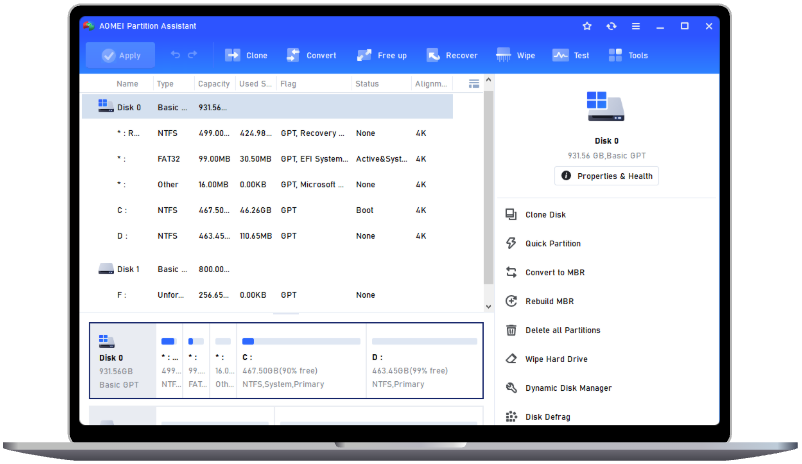A Comprehensive Guide with Block Windows 11 Update GPO Active Directory
Take charge of updates! Explore GPO and Active Directory methods to block Windows 11 updates effortlessly.
Windows 11 updates are crucial for system security and performance, but sometimes, you need more control. In this guide, we delve into the intricacies of managing Windows 11 updates using Group Policy Objects (GPO) and Active Directory. Let's explore how to block Windows 11 updates, empowering you to dictate when and how your system evolves.
Understanding the Issue: Unraveling the Windows 11 Update Challenge
The Problem Unveiled
Updating Windows 11 is essential, but encountering issues like blue screens post-update can be frustrating. Let's dissect the problem and understand its impact on your system.
Causes of Blue Screen After Windows 11 Update
Driver Compatibility Issues: Outdated or incompatible drivers can clash with the new update.
Software Conflicts: Certain applications may not be compatible, leading to conflicts.
Incomplete Update Installation: Interrupted or incomplete updates can trigger blue screen errors.
Crafting Solutions: Taking Control with GPO and Active Directory
Solution 1: Windows 11 Update Disable GPO
Follow these steps to disable Windows 11 updates using Group Policy:
Access Group Policy Editor.
Navigate to "Computer Configuration" > "Administrative Templates" > "Windows Components" > "Windows Update."
Locate "Configure Automatic Updates" and set it to "Disabled."
Solution 2: Active Directory Block Windows 11 Update
Control updates at the domain level:
Open Group Policy Management Console.
Create a new GPO and link it to the desired Organizational Unit (OU).
Configure Windows Update settings to block updates.
Solution 3: Group Policy Block Windows 11 Update
Refine update policies using Group Policy:
Navigate to Group Policy Editor.
Locate "Do not connect to any Windows Update Internet locations" and set it to "Enabled."
Solution 4: Disable Windows 11 Update Using Group Policy
Take granular control over updates:
Access Group Policy Editor.
Navigate to "Computer Configuration" > "Administrative Templates" > "Windows Components" > "Windows Update."
Find and enable "Do not include drivers with Windows Updates."
Spotlight on AOMEI Partition Assistant Professional
Considering a third-party solution? AOMEI Partition Assistant Professional offers:
User-Friendly Interface: Intuitive design for seamless navigation.
Partition Management: Easily manage partitions with advanced features.
Migrate OS: Effortlessly transfer the OS to a new drive.
Demystifying Technical Terms
Group Policy Objects (GPO): GPO is a set of rules that define how systems operate in a network, providing centralized management.
Active Directory: Active Directory is a Microsoft directory service that organizes and manages network resources, including users and devices.
Blue Screen of Death (BSoD): BSoD is a critical system error screen displayed on Windows, indicating a severe system crash.
Organizational Unit (OU): OU is a container within Active Directory used to organize and manage users, groups, and computers.
Group Policy Management Console (GPMC): GPMC is a tool for managing Group Policy across an Active Directory environment, offering a centralized interface.
Tips for Effective Windows 11 Update Management
Regularly check for driver updates to ensure compatibility.
Create a system restore point before implementing major changes.
Monitor event logs for any update-related issues.
Conclusion
Mastering Windows 11 update control is pivotal for a seamless computing experience. Whether leveraging GPO, Active Directory, or third-party tools like AOMEI Partition Assistant Professional, you now possess the knowledge to navigate the update landscape confidently.
FAQs: Addressing Your Concerns
Q: Can I selectively block specific updates using GPO?
A: Yes, GPO allows you to specify which updates to block. Refer to the GPO settings for detailed control.
Q: Does AOMEI Partition Assistant Professional support dynamic disk management?
A: Yes, AOMEI Partition Assistant Professional provides comprehensive support for dynamic disk management.
Q: How often should I check for Windows 11 updates?
A: Regularly check for updates at least once a week to ensure your system stays secure and optimized.
Q: Are there risks associated with disabling Windows 11 updates?
A: Disabling updates may expose your system to security vulnerabilities. Exercise caution and consider alternative solutions like selective blocking.
Q: Can I revert changes made through Group Policy?
A: Yes, you can revert Group Policy changes by returning to the respective settings and restoring them to their default configurations.
In this guide, we've empowered you to take charge of your Windows 11 update experience. Implement these strategies wisely, considering your system's unique needs. If you have more questions, feel free to explore additional resources or seek professional advice.


